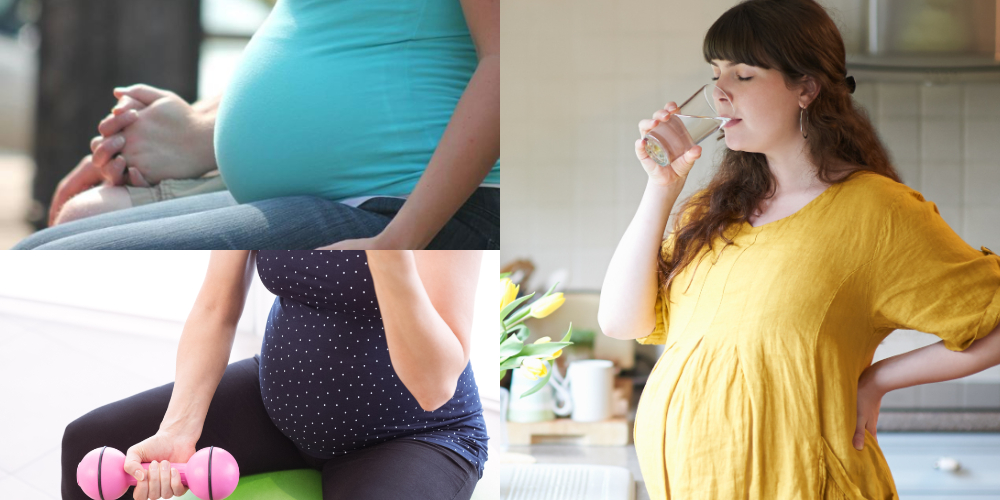
Important Pregnancy Tips
It’s a time to celebrate when you find out your pregnancy. A child is a blessing in many ways and this will be an exciting journey for you.
However, there are a number of things you should know from the start — a list of do’s and don’ts to ensure a healthy pregnancy for you and your baby.
Beneficial Do’s & Don’ts During Pregnancy:
Do’s
Some important things you should do during your pregnancy include:
- Avoid all alcohol and tobacco.
- Avoid exposure to cleaning solvents, pesticides, lead and mercury.
- Eat a balanced diet that includes folic acid, iron and calcium.
- Maintain safe travel habits, such as correct seat belt usage.
- Set limits for yourself to reduce stress.
- Get enough sleep. Aim for six to nine hours a day.
- Exercise regularly.
Don’ts
To keep your baby healthy, stay away from the following:
- Don’t take any medicine unless your doctor approves it.
- Steer clear of vigorous activity that could involve a risk of falling or overheating.
- Don’t eat unpasteurized milk and soft cheeses, fish high in mercury, or raw or undercooked foods including fish and eggs.
- Stay away from heavy lifting and bending.
- Don’t take hot baths or use saunas. High temperatures can be harmful to the fetus or lead you to faint.
- Stay away from radiation. X-rays should be avoided during pregnancy.
It is always recommended that you discuss do’s and don’ts with your doctor to determine a list of suggestions specific to your pregnancy.
The following resources are also available to help you learn more about what you can do to lower risks during pregnancy.
Why is folic acid important?
The U.S. Public Health Service recommends that all women of childbearing age consume 400 micrograms of folic acid each day.
Folic acid, a nutrient found in some green leafy vegetables, most berries, nuts, beans, citrus fruits, fortified breakfast cereals, and some vitamin supplements can help reduce the risk for birth defects of the brain and spinal cord (called neural tube defects).
The most common neural tube defect is spina bifida, in which the vertebrae do not fuse together properly, causing the spinal cord to be exposed.
This can lead to varying degrees of paralysis, incontinence, and sometimes mental retardation.
Folic acid is most beneficial during the first 28 days after conception, when most neural tube defects occur. Unfortunately, many women do not realize they are pregnant before 28 days.
Therefore, folic acid intake should begin prior to conception and continue through pregnancy.
Your healthcare provider or midwife will recommend the appropriate amount of folic acid to meet your individual needs.
Most healthcare providers or midwives will prescribe a prenatal supplement before conception, or shortly afterward, to ensure all of the woman’s nutritional needs are met.
However, a prenatal supplement does not replace a healthy diet.
Exercise During Pregnancy
Regular exercise, with the approval of your physician or midwife, can often help to minimize the physical discomforts of pregnancy and help with the recovery after the baby is born.
There is evidence that physical activity may be especially beneficial for women with gestational diabetes.
Exercise may not be safe if the pregnant woman has any of the following conditions:
- Preterm labor in current or past pregnancies
- Vaginal bleeding
- Cervical problems
- Leaking of amniotic fluid
- Shortness of breath
- Fainting
- Decreased fetal activity or other complications
- Increased heart rate
- Certain health problems
Types of exercise and strenuous activities to avoid during pregnancy include:
- Horseback riding
- Water skiing
- Scuba diving
- High altitude skiing
- Contact sports
- Any exercise that can cause a serious fall
- Exercising on your back after the first trimester (because of reduced blood flow to the uterus)
- Vigorous exercise in hot, humid weather, as pregnant women are less efficient at exchanging heat
- Exercise involving the Valsalva maneuver (holding one’s breath during exertion), which can cause an increased intra-abdominal pressure
Read More News On
Catch all the Health News, Breaking News Event and Latest News Updates on The BOL News
Download The BOL News App to get the Daily News Update & Follow us on Google News.



